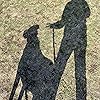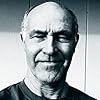To answer questions about
How to Change Your Mind: The New Science of Psychedelics,
please sign up.
Brian
Not at all. The book is divided into three main sections. The first is a history of research in the (mostly psychiatric) use of psychedelics. The third part is a look at current research into the ways these molecules actually affect the brain--in other words, it explores the question of the mechanism of efficacy. The middle section is Pollan's recounting of some of his experiences using these molecules, though I wouldn't describe this as treating the reader to his high. Rather, he tries to put into words what he experienced, and his point here is how that changed him from an open-minded, atheist skeptic into a even more open-minded revisionist of materialist views of the world. Where once he saw an opposition, as he says, between "spiritual" and "materialist," he now views the opposition as between spiritual and egotistical. As difficult as it is for members of such a stridently individualist culture to grasp, Pollan now argues that that is the source of some of our most critical health care issues, e.g., addiction and depression. So don't underrate this book because of jacket hype. He may be (still) on the cutting edge, but this book (and the research it presents) is in far from going off the deep end. He has, as usual (especially for readers of The Botany of Desire, a far better book than The Omnivore's Dilemma), opened a reasoned, thoroughly researched, and open-minded window onto an area of research that for decades has helped those suffering from anxiety, alcoholism, and more.
Anna
Not at all. This is up to his usual standard. He illuminates a taboo topic from all angles. Really worth reading.
Nancy Mills
He delves into topics that have been taboo or politically incorrect for too long, in a fairly objective way. It may be impossible to come across as an impartial observer, of course, when describing one's own "trips," but the book deals much more with research. I found it very worthwhile and fascinating reading.
Sara Clarke
There is a section of the book that is about three "trips" Pollan takes with a guide in the traditional "set and setting" clinical/spiritual approach of the early psychiatric research into psychedelics. (I clarify that because, rest assured, this is NOT either an "I dropped acid at Woodstock, it was groovy, man" type of account, or an "in the interest of seeing for myself I ate a magic mushroom, here's a stream of consciousness from that".)
He gets pretty scientific with it, and he undergoes psychedelic experiences that the casual basement pothead probably doesn't have access to. (Which, as a basement pothead, was my first concern when I found out Pollan's personal account would be part of the book. We've all taken mushrooms with pen and paper handy, DAD...) Also, you know, Michael Pollan is a professional writer. He manages to give these experiences narrative shape and uses artful language to make the ineffable aspects of his journey both understandable and also interesting to read about.
Bottom line, if you aren't interested in hearing about the author's personal experience with his subject matter, it's easy to skip those chapters, and you wouldn't lose anything. However, they're also much more interesting and more readable than I would have guessed.
He gets pretty scientific with it, and he undergoes psychedelic experiences that the casual basement pothead probably doesn't have access to. (Which, as a basement pothead, was my first concern when I found out Pollan's personal account would be part of the book. We've all taken mushrooms with pen and paper handy, DAD...) Also, you know, Michael Pollan is a professional writer. He manages to give these experiences narrative shape and uses artful language to make the ineffable aspects of his journey both understandable and also interesting to read about.
Bottom line, if you aren't interested in hearing about the author's personal experience with his subject matter, it's easy to skip those chapters, and you wouldn't lose anything. However, they're also much more interesting and more readable than I would have guessed.
Rick Kennerly
No. NIH is doing microdosing trials with LSD & depression. I was going to apply, but you had to stay in DC for 6 weeks.
Johns Hopkins has had so much success with micro-dosing psilocybin that they are trying to have it rescheduled from Schedule 1 to schedule 2.
There are many clinics opening up ketamine therapy programs.
They’ve discovered some communities in Texas with remarkably low suicide rates. Turns out they’ve been micro-dosing with lithium in their ground water (naturally occurring).
Pollen’s on the leading edge of the public’s re-evaluating psychadelics in treating any number of mood disorders.
Johns Hopkins has had so much success with micro-dosing psilocybin that they are trying to have it rescheduled from Schedule 1 to schedule 2.
There are many clinics opening up ketamine therapy programs.
They’ve discovered some communities in Texas with remarkably low suicide rates. Turns out they’ve been micro-dosing with lithium in their ground water (naturally occurring).
Pollen’s on the leading edge of the public’s re-evaluating psychadelics in treating any number of mood disorders.
Hank
Perhaps the author has "gone off the deep end" because that is part of what his study is about. There is a reason that psychedelic substances are referred to as "mind-expanding" because they take the user "outside the box." That's the point. There are numerous similar books that describe a mystical, spiritual or ecstatic experience in which labels, stories, and prior assumptions are blown away, and therefore the person's perspective and life are changed forever. This might happen with or without a drug. Pollan goes through the history to arrive at the current state in which psychedelics might be used in respectful, therapeutic and healing ways with the aid of doctors, clinicians, therapists, and even clergy. Pollan describes three or four of his own trips, including his interviews with the guides who help him with his inner journeys. Pollan wrote an article in 2015 for the New Yorker that must have been written while he was working on the book. https://www.newyorker.com/magazine/20...
Oliver Hockenhull
At this point in the game of our civilization — going off the deep end means swimming in the real world of our interbeing (a term of the Buddhist monk Thich Nhat Hanh). Psychedelics when used with skill and care encourage the moment of grace that reveals our interdependence with all life. See my film FROM NEURONS TO NIRVANA: THE GREAT MEDICINES. https://www.shinynewfilms.com/entheo/
Nick Crutchley
Pollan is not a career tripper, or should I say, he's no shaman. His own account is mere curiosity. However, he does recount the experiences of others well. Its worth a listen. Just posted a review.
Suzanne Prichard
Michael Pollan is one of my favorite writers, and "Omnivore's Dilemma" changed my life & outlook about food - and I was already what they call a "Foodie." IMO this is his weakest. The "science" is there - but at the end of the day it's a drug - not some key to the universe. This is unlike "Botany of Desire," where his poetry about Natural Selection seems more plausible and the arguments more elegant. The book is repetitive and just a bit too long. I'm seriously disappointed and I kind of find myself rolling my eyes a bit too many times, like when people say they "remember" being born! If, like me, you found "Easy Rider," and Kerouac to be eye-rolling, and macho/masculine, you my not not love this book either. Aside from a couple of "wives of scientists" the whole history of LSD/Psychedelics is all dudes. - Why is that?- Perhaps women actually already have the keys to the universe via life-creating? We are living proof of the material and practical world, and we don't feel the need to escape all the time? I don't know - he doesn't ask. This is just my opinion, but I feel like this is sort of a silly topic for Pollan.
Susan Lewallen
I only read this because a non fiction book club I’ve recently joined selected it. I’m so glad I did, although it was long slog and took me many days. I’d like to check a few of the “facts” presented but I suspect Pollen has done I pretty good job. The Bibliography is extensive but I’d have appreciated more referencing of specific statements. I was astonished at the names of reputable scientists and public figures who had some role in the early studies of hallucinogens and dismayed by the role the government and scientists in suppressing information later. I predict there will be a upsurge in the use of these drugs as a result of the book and I hope it’s done carefully and in a way that allows us to learn more.
Akhil Munjal
There are a lot of science facts in this book which are the very foundation theories postulated by the author. Especially how human mind comprehends music, language and time and how this comprehension though usually invisible - becomes quite clear with psychedelics. This topic is quite taboo unfortunately so many people shun it just like talking about divorce before marriage but as people of science, we should go forward with both eyes wide open.
Kay Fontana
I couldn't be more disappointed in a book. I read his others and loved them. This one starts out well but dies in the history section where he lets his opinions speak instead of reality. He can't relate to this subject and isn't going anywhere with it.
C
i don’t understand the question ? and how does the question even entail the Pollan has gone off the deep end ?
Jan Rowley
I have just begun the book; still in the first part. But, I'm all in. I have a hard time putting it down. He, and the scientists involved, touch something in the universe that I believe is important. I expected something different, and am happy to find I was wrong--so far.
Numidica
No. There is a lot of science being done currently to understand the beneficial effects that the psychedelic substances can have on the human mind. Pollan documents all that in his typical exhaustively detailed fashion. Very interesting stuff and a good, but long, read.
Randy Rhody
He has remained on the shallow end, for the safety of a non-swimming readership. Having done a little deep-sea diving of my own (to continue the metaphor), I can verify he points to a few truths that you cannot experience with language.
My rating/review forthcoming.
My rating/review forthcoming.
Nicole
Sounds like you are exactly the kind of person who would really benefit from reading this book (I actually suggest listening to the audiobook). If you were to try a psychedelic experience you would realize how silly it would be to assume the intention of anyone who has had the experience to even make an attempt to do as you suggested in saying “the reader being treated to an experience of the author’s high without doing the drug.” You cannot experience the author’s high, even if you were doing the drug.
Susan Haines
I don't like his leaving the door open about maybe there is an external common consciousness or gods. As he admits, the high suggestibility with these drugs means people will use their own metaphors and those given to them to make their own interpretations. It doesn't mean those experiences are scientifically valid, however helpful they may be.
About Goodreads Q&A
Ask and answer questions about books!
You can pose questions to the Goodreads community with Reader Q&A, or ask your favorite author a question with Ask the Author.
See Featured Authors Answering Questions
Learn more





















